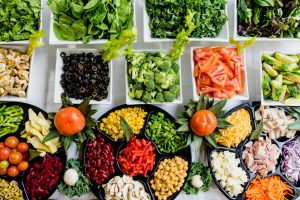Regenerative Agriculture: How Soil Health Shapes Tomorrow’s Menus
Regenerative agriculture is quickly becoming a buzzword in the world of sustainable food production. As consumers become more aware of the impact their food choices have on the planet, there is a growing demand for food grown in an environmentally friendly and socially responsible way. And as the concept of regenerative agriculture gains momentum, more and more people are beginning to understand the crucial role that soil health plays in shaping tomorrow’s menus.
The Basics of Regenerative Agriculture
So, what exactly is regenerative agriculture? At its core, regenerative agriculture is a farming practice that focuses on rebuilding and restoring soil health. The goal is to create a self-sustaining system that not only produces healthy and nutritious food but also helps to improve the overall health of the ecosystem.
Unlike conventional agriculture, which is known for using practices such as monocropping, heavy tilling, and chemical fertilizers, regenerative agriculture takes a more holistic approach. It involves a variety of practices, including cover cropping, crop rotation, no-till farming, and the use of natural fertilizers, to promote biodiversity, prevent erosion, and boost soil health.
The Connection Between Soil Health and Food Quality
One of the main motivations behind regenerative agriculture is the understanding that soil health directly influences the quality of the food we eat. This is because healthy soil is filled with microbial life, which plays a crucial role in breaking down organic matter and making nutrients available for plants to absorb.
When soil is depleted of these microbes due to conventional farming practices, the food grown in that soil is also lacking in essential nutrients. This means that even if the produce looks healthy and fresh, it may not offer the same nutritional value as food grown in soil that is teeming with microbial life.
Additionally, healthy soil produces more resilient crops, which are better able to withstand pests and diseases without the use of harmful chemical pesticides. This not only results in healthier food for consumers but also reduces the environmental impact of farming.
The Impact on Tomorrow’s Menus
So, how does all of this tie into tomorrow’s menus? As consumers continue to place a greater emphasis on sustainable and ethical food options, there is a growing demand for food that is both healthy for individuals and the planet. This means that farmers who adopt regenerative agriculture practices are poised to thrive in the future food market.
In addition to producing higher quality and more nutritious food, regenerative agriculture also has the potential to play a crucial role in fighting climate change. Due to the increase in carbon sequestration, regeneratively farmed land can act as a carbon sink, reducing the amount of carbon dioxide in the atmosphere and helping to mitigate the effects of global warming.
The Role of Consumers in Shaping Tomorrow’s Menus
While the adoption of regenerative agriculture practices is crucial in shaping tomorrow’s menus, there is also a role for consumers to play. By supporting farmers who use regenerative practices, consumers can help to drive the shift towards a more sustainable and ethical food system.
One way to do this is by choosing to purchase food from local farmers who use regenerative practices. Not only does this support the local economy, but it also reduces the carbon footprint of the food by cutting down on transportation emissions.
Consumers can also educate themselves on the practices used by different food companies and make informed choices about the food they buy. By supporting companies that prioritize regenerative agriculture, consumers can send a message to the food industry that sustainability and soil health are important factors in their purchasing decisions.
Conclusion
The future of our food system depends on the health of our soil. By implementing regenerative agriculture practices, farmers can not only produce healthier food but also help to combat the effects of climate change. And with the support of consumers, this farming method has the potential to shape tomorrow’s menus for the better, promoting a more sustainable and ethical food system for all.








